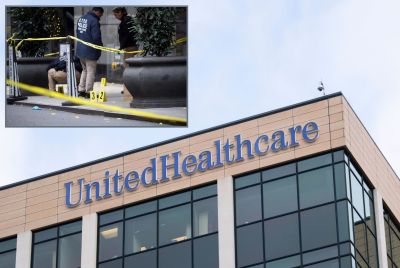GM considers keeping Opel as pressure mounts
General Motors Co is considering a plan to raise funding to keep Opel as an alternative to selling the unit to Magna International , sources with knowledge of the deliberations said on Monday.
The development comes against a backdrop of escalating labor tensions and political stakes over GM's slow-moving effort to sell control of Opel and its British affiliate, Vauxhall.
The Obama administration pledged on Monday to stay out of GM's choice of a buyer for Opel, while union leaders in Germany put more pressure on the U.S. automaker to make a decision.
At a board meeting on Friday, GM directors declined to endorse a sale of Opel to Magna, sending the automaker back into negotiations this week with the German government.
While GM remains focused now on trying to clear remaining issues with the Magna deal, executives also are considering other options, including raising more than $4 billion in a bid to keep Opel, sources said.
GM had no immediate comment.
Because GM is barred from using funding from the U.S. government to support its international operations, one of the options could include raising money by selling or mortgaging the automaker's assets in China, one of the sources said.
Berlin and the German states that host Opel plants have made clear they want Magna to get Opel and are set to provide 4.5 billion euros ($6.4 billion) in state aid to make it happen.
Germany has already provided 1.5 billion euros in bridge financing for Opel. As a result, German trustees overseeing a majority stake in Opel have to approve any deal after it clears the GM board.
With an election looming, German officials also have thrown their support behind the Magna bid for Opel because of the view that it would be the best option for preserving jobs.
'THE FIRST WARNING SHOT'
Negotiations over Opel have dragged on for months, frustrating its 50,000 European employees.
On Monday, labor leaders for Opel's 25,000 workers in Germany protested the delay by rescinding an agreement to forego vacation pay, demanding some 70 million euros ($100.1 million) in cash next week, sources familiar with the action told Reuters.
This is the first warning shot, said one of the sources, who requested anonymity.
Separately, Opel labor leader Klaus Franz, speaking on German radio, threatened spectacular measures if GM did not make up its mind soon.
We have been calm so far, listened diligently and made comments, but that is over now, Franz said.
GM had been expected to reach a decision on Friday on whether to sell Opel to Magna, Berlin's favored bidder, or to Brussels-based investment firm RHJ International .
GM emerged from bankruptcy in July with 60-percent U.S. government ownership after taking $50 billion in financing.
But White House Deputy Press Secretary Bill Burton said on Monday that President Barack Obama's administration had no plans to get involved in GM's decision regarding Opel.
The president's view is that decisions made on the day-to-day operations of General Motors should be made by the folks at General Motors. He never wanted to get into the auto business and he's happy for them to make their decisions and get back on their feet, Burton said at a press briefing in Oak Bluffs, Massachusetts, where Obama is vacationing.
NO STATE LOAN FOR RHJ
As German government officials grew increasingly anxious over Opel, Finance Minister Peer Steinbrueck called GM's delay annoying and urged a quick decision.
In an interview to be published in the Handelsblatt newspaper on Tuesday, Steinbrueck was quoted as saying the government would not offer bridge financing to RHJ.
It's my impression that the management of GM likes the investor RHJ International because it would be easier for GM to buy Opel back in a few years, Steinbrueck was quoted as saying.
Opel's fate could influence Germany's federal election in September.
GM has said the RHJ offer would be easier to implement than the Magna plan, which involves an equal equity stake for Russian bank Sberbank and an industrial partnership with Russian automaker GAZ Group .
One concern analysts see for the Magna deal is GM's ability to control its intellectual property and vehicle technology in the Russian partnership.
German Foreign Minister Frank-Walter Steinmeier sought help from U.S. Secretary of State Hillary Clinton over the weekend to resolve the Opel issue.
Steinmeier was told Clinton would only relay Germany's concerns to the U.S. Treasury Department, which oversees the GM investment. It was a real short conversation, said a U.S. State Department official, who asked not to be named.
The Opel sale represents an early test of the U.S. government's relationship with a nationalized automaker.
Any U.S. government pressure on GM regarding the Opel decision could cause broader concerns about federal influence in commercial decisions of a range of companies that have received taxpayer support in the past year.
It also could scare away investors crucial for a GM initial public stock offering planned for as early as next year.
Erich Merkle, an analyst at Autoconomy.com in Grand Rapids, Michigan, said Obama needed to resist political pressures surrounding the Opel decision.
If you are not interested in running an automaker, the government shouldn't be making this decision for General Motors, Merkle said.
(Reporting by David Lawder and Christiaan Hetzner; Additional reporting by Noah Barkin, Paul Carrel and Erik Kirschbaum in Berlin, Maria Sheahan and Angelika Gruber in Frankfurt, Kevin Krolicki and David Bailey in Detroit, Arshad Mohammed in Washington, and Patricia Zengerle in Massachusetts; Editing by Toni Reinhold and Carol Bishopric)
© Copyright Thomson Reuters 2024. All rights reserved.





















